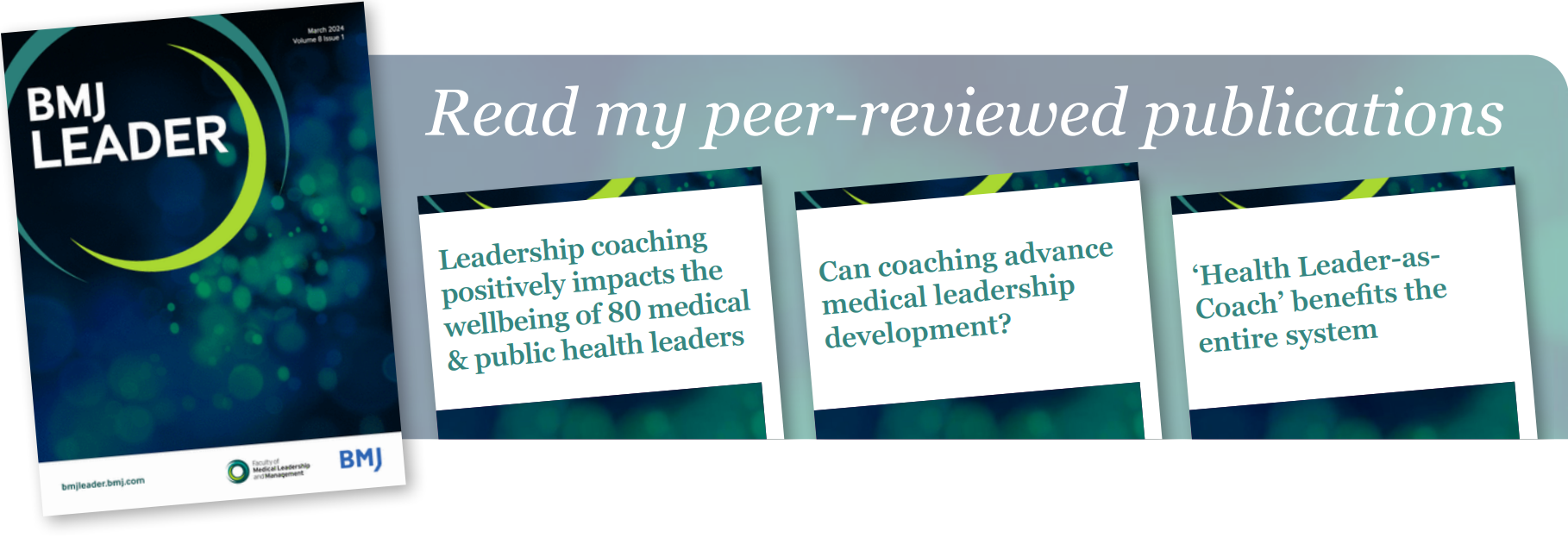Can Coaching Advance Medical Leadership Development? The positive evidence for workplace coaching – and especially for Coaching Psychology – for doctors, medical leaders and public health leaders
Click here for the full article in BMJ Leader and here for the pre-publication soft copy.
Day FJ, Hothi D. Can coaching advance medical leadership development? BMJ Leader Published Online First: 01 March 2024. doi: 10.1136/leader-2023-000853
Below is a summary of some of the key findings based on systematic reviews and meta-analyses.






